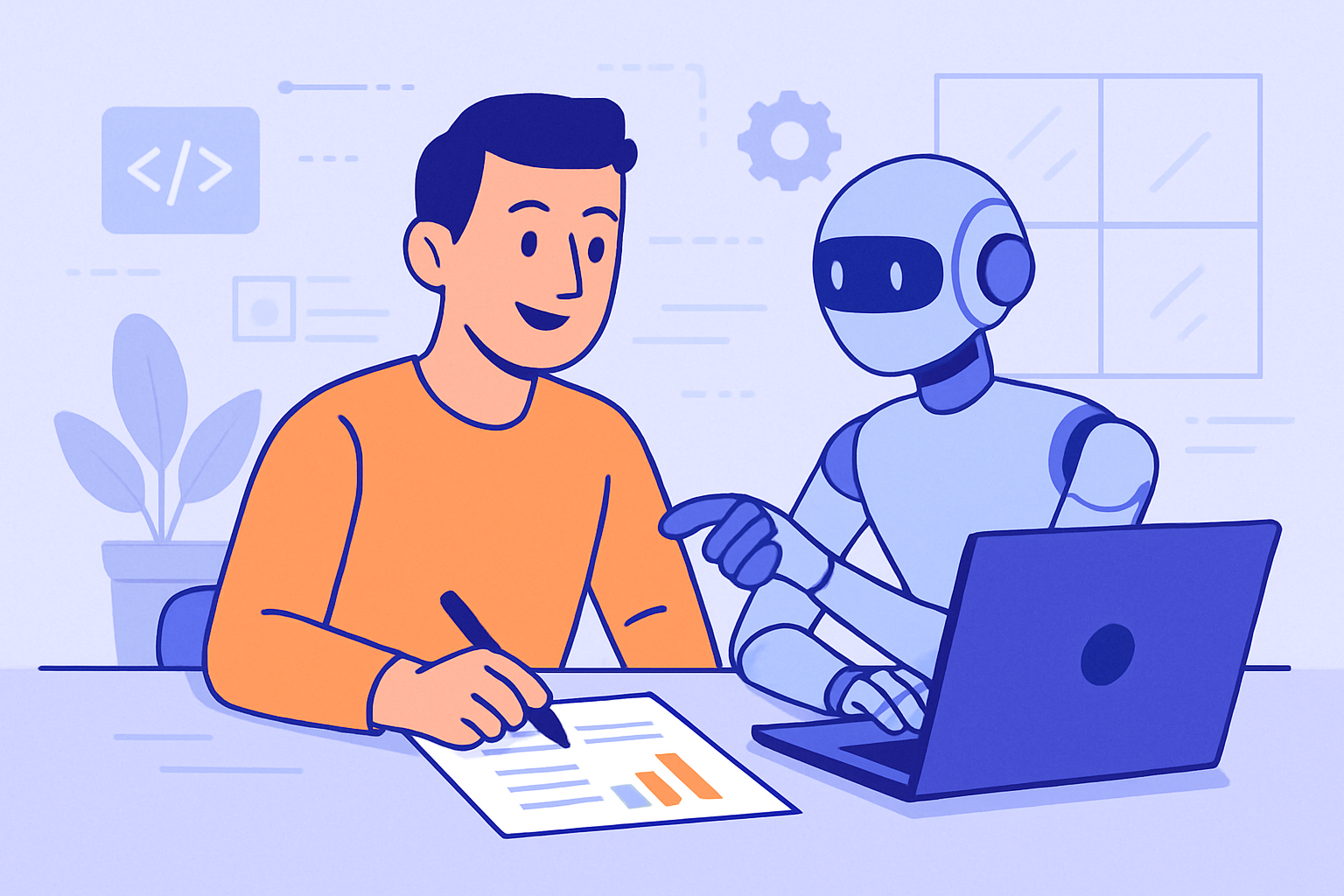Will AI Replace Your Job? A Beginner's Guide to Understanding the Future
Is AI going to replace your job? Get a realistic take on the future of work and learn how to prepare for the age of automation. Beginner-friendly guide.

Is AI Going to Steal Your Job? A Realistic Look for Beginners
Artificial intelligence (AI) is rapidly changing the world, and it's natural to wonder: will AI replace my job? The short answer is: it's complicated. While some jobs will undoubtedly be impacted, many others will evolve, and new opportunities will emerge. This guide will help you understand the realistic potential of AI and how to prepare for the future of work.
Understanding the Current State of AI
AI, in its current form, excels at automating repetitive tasks, analyzing large datasets, and making predictions based on patterns. Think of AI as a powerful assistant that can handle tasks that are often time-consuming and tedious. However, AI still lacks the creativity, critical thinking, and emotional intelligence that are uniquely human.
Jobs Most at Risk of Automation
Jobs that involve routine, predictable tasks are the most susceptible to automation by AI. These might include:
- Data entry clerks
- Customer service representatives (handling basic inquiries)
- Assembly line workers
- Truck drivers (eventually, with the advancement of self-driving technology)
It's important to remember that even in these fields, AI is more likely to augment human workers rather than completely replace them in the near term. For example, a customer service AI chatbot can handle simple questions, freeing up human agents to focus on complex issues that require empathy and problem-solving skills.
Jobs Less Likely to Be Replaced by AI
Jobs that require creativity, critical thinking, emotional intelligence, and complex problem-solving are less likely to be replaced by AI. These might include:
- Doctors and nurses (requiring nuanced diagnosis and patient care)
- Teachers (requiring personalized instruction and mentorship)
- Therapists and counselors (requiring empathy and emotional support)
- Entrepreneurs and innovators (requiring creativity and vision)
- Software developers and AI engineers (requiring complex problem-solving and innovation in the field of AI itself)
How AI Can Augment Your Job
Instead of fearing replacement, consider how AI can enhance your current role. AI can automate tedious tasks, freeing up your time to focus on more strategic and creative aspects of your work. For example:
- Marketing: AI can help you analyze customer data, personalize marketing campaigns, and automate social media posting.
- Sales: AI can help you identify leads, personalize sales pitches, and automate follow-up emails.
- Project Management: AI can help you track project progress, identify risks, and automate task assignments.
Preparing for the Future of Work with Automation
The best way to prepare for the future of work is to embrace lifelong learning and develop skills that are complementary to AI. Consider focusing on:
- Critical Thinking: The ability to analyze information, solve problems, and make sound judgments.
- Creativity: The ability to generate new ideas and approaches.
- Emotional Intelligence: The ability to understand and manage your own emotions and the emotions of others.
- Technical Skills: Learning how to use and manage AI tools and platforms.
- Adaptability: The willingness to learn new skills and adapt to changing circumstances.
Automate Your Workflow with No-Code Tools
One of the best ways to get started with AI and automation is to explore no-code platforms. These tools allow you to automate tasks and build applications without writing any code. This empowers you to streamline your workflow and improve your productivity.
A great example of a no-code automation platform is Make.com. With Make, you can connect different apps and services to automate repetitive tasks. For instance, you could automatically save email attachments to Google Drive, update a spreadsheet when a new lead comes in, or even create a simple AI chatbot to answer frequently asked questions. It's a fantastic tool for anyone looking to increase efficiency and free up time for more important tasks.
The Future is Collaboration, Not Replacement
Ultimately, the future of work is likely to be a collaboration between humans and AI. By embracing AI as a tool to augment our abilities and focusing on developing uniquely human skills, we can create a future where everyone can thrive.
Taking Control of Your Career
The key takeaway is to not panic. Instead, take proactive steps to understand AI, learn new skills, and explore how AI can be integrated into your work. By doing so, you can position yourself for success in the rapidly evolving world of work.
Frequently Asked Questions
Will AI completely replace human jobs?
While some jobs are at risk of automation, AI is more likely to augment human workers, handling repetitive tasks and freeing up humans to focus on more complex and creative work.
How can a beginner use automation platforms like Make.com to improve their job prospects?
By learning to automate tasks with platforms like Make.com, you can increase your efficiency and demonstrate valuable skills to employers, making you a more attractive candidate.
Is learning AI and automation difficult for someone new to technology?
No-code platforms like Make.com are designed to be user-friendly and accessible, even for beginners. Many online resources and tutorials are available to help you get started.
What skills should I focus on to stay relevant in the age of AI?
Focus on developing skills that AI can't easily replicate, such as critical thinking, creativity, emotional intelligence, and complex problem-solving.
Affiliate Disclosure: Some of the links on this site are affiliate links. I earn a small commission if you make a purchase through them—at no extra cost to you. Thank you for your support!